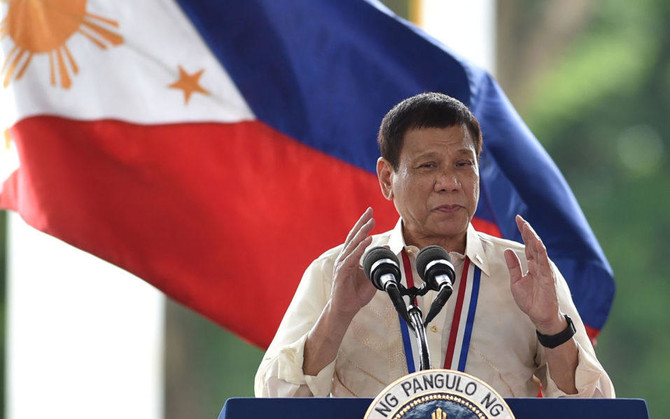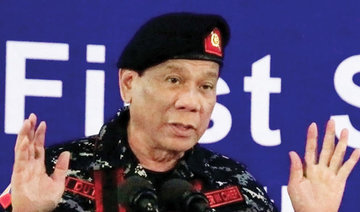LONDON: Imposing a ban on Filipinos working in Gulf states may “do more harm than good” as it could push workers to resort to unsafe and unregulated channels, a human rights group has warned.
Philippines President Rodrigo Duterte on Wednesday threatened to permanently ban Filipinos from working in Kuwait, as well as withdraw his countrymen from working there if another Filipino domestic helper is raped and dies, it was reported this week.
The Philippines Department of Labor and Employment (DOLE) last week suspended the processing of overseas employment certificates for workers bound for Kuwait following the deaths of Filipino workers who had allegedly suffered sexual abuses by their employers, according to Philippines media.
Duterte said last week that four Filipinos had died in Kuwait over the past few months in apparent suicides, AFP reported. Duterte has since asked the governments of Kuwait and other Middle Eastern countries, where more than a million Filipinos work, to take steps to end the abuse and “to treat my countrymen as human beings with dignity.”
But instead of banning Filipinos from working in Kuwait, the Philippines president should demand stronger protections, Human Rights Watch (HRW) women’s rights division researcher Rothna Begum said in a statement on the organization’s website.
“Such a ban would likely do more harm than good, forcing workers to take greater risks to seek overseas employment while cutting off a critical source of income for families in the Philippines,” Begum said.
HRW recommends the Philippines government seeks to advocate an end to the “abusive” kafala (visa sponsorship) system which ties migrant workers to their employers and prohibits them from leaving or changing jobs without their employer’s permission.
More than 250,000 Filipinos work in Kuwait, the Philippine foreign ministry estimates, most of them as domestic helpers. There are also large numbers in the UAE, Saudi Arabia and Qatar.
“The experience of other countries like Indonesia, that have instituted bans on their nationals similar to that threatened by President Duterte, is that such bans do not end these abuses,” Begum added.
Instead, improved cooperation with Middle East governments to work alongside the Philippines embassy to help rescue workers in distress and conduct investigations into worker deaths is recommended, the HRW researcher said.
Kuwait initially expressed surprise at the ban and said it was in touch with Manila to try to resolve the issue.
Duterte said Kuwait was an ally, but abuse should not be tolerated.
Ban on Filipino workers in Kuwait may ‘do more harm than good’
Ban on Filipino workers in Kuwait may ‘do more harm than good’













